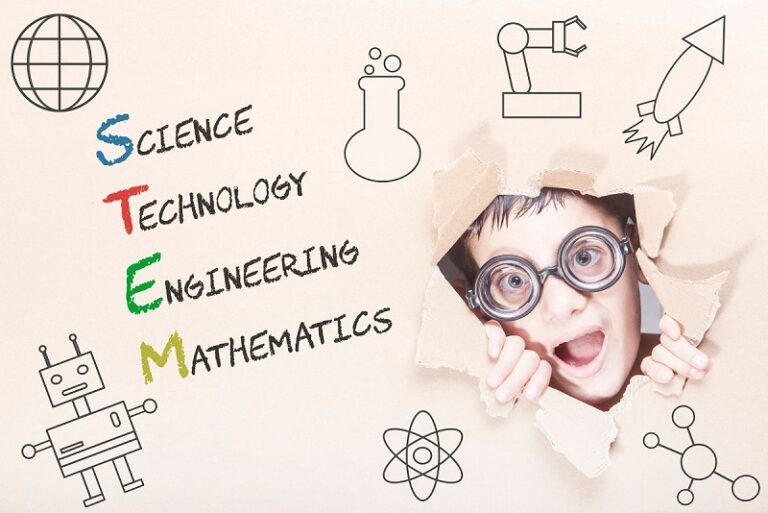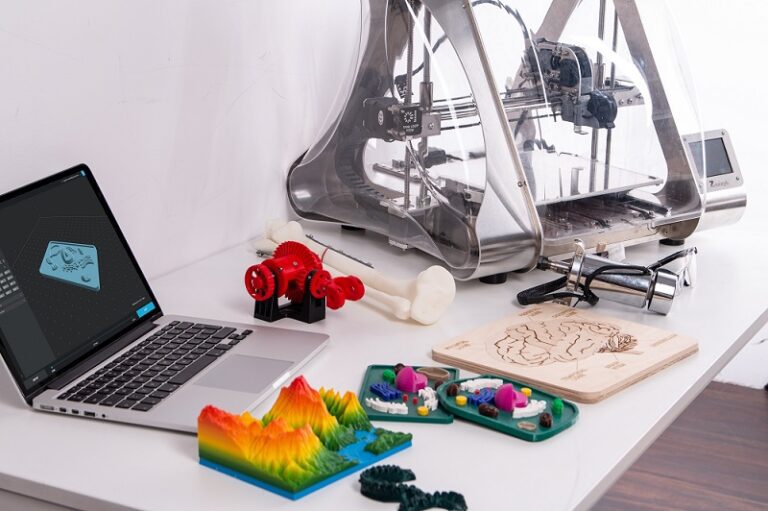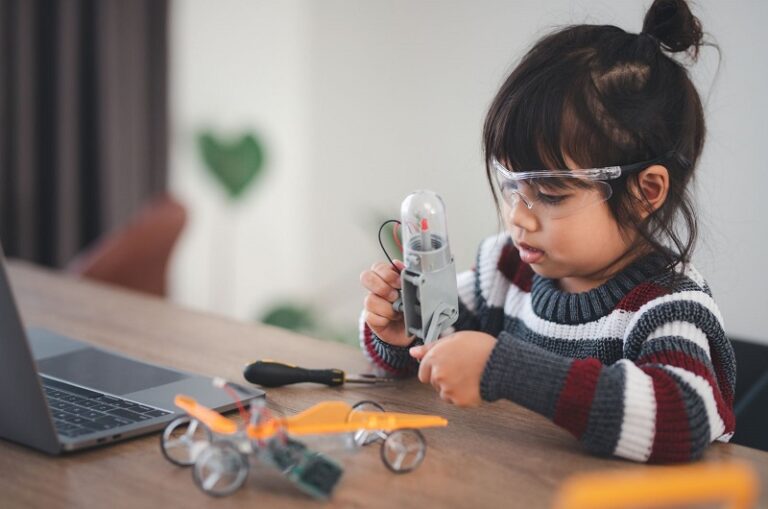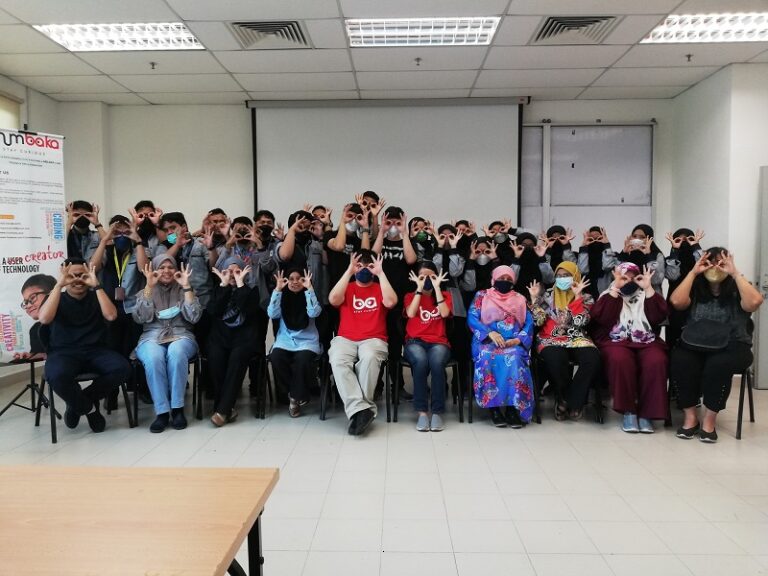And how can you get started at home?
In Malaysia, we often hear about STEM education. However, do you know what STEM is? Getting a definition for STEM is easy enough: it stands for Science, Technology, Engineering, and Math. If you have taken mathematics, science, or biology classes before, technically you’re taking a class that’s a part of STEM learning. However, STEM is more than just a useful way of grouping subjects in a catchy acronym. STEM incorporates the four philosophies into one. Instead of giving you knowledge in books, STEM focuses on applying the knowledge in real-life situations, enabling you to solve the world’s problems.

Why STEM?
STEM education focuses on Science, Technology, Engineering, and Mathematics. However, the aim is not just to teach you separate subjects, but to integrate the learning into the understanding of the real world around us, including the world revolving around Industry 4.0. Equipping learners with 21st-century skills under STEM education spurs an appreciation for technology and emphasizes its significance in our lives.

Don’t believe it? Try putting away your phones, computers, modems, smartwatches, and other electrical appliances. How long can you go without them? We believe most of the people out there cannot hold it for long (1 hour and a half is the max)! Thus, let’s take a moment to appreciate our existing technologies. However, have you ever encountered some moments where you find the drawbacks or anything that the existing technologies lack? Yes, you guessed it.
Fellow parents in Malaysia, here are some ways you may get started with your kids to learn STEM!
How to get started with learning STEM with my kids in Malaysia?
1. Money can only buy you courses but not experiences and knowledge!
Field trips are the best form of experiential learning, especially so for STEM learning, which is likely to be more active and integrated than traditional pedagogy. We learn from the better person. With experts from all over the world installing your children with their precious experiences and thoughts there is no reason your children are not joining! So, let your children join workshops (e.g. Chumbaka’s Science Kocek, Petrosains School Holidays Programme), visit Maker Fairs (e.g. Penang International Science Fair (PISF), Kuala Lumpur Engineer Science Fair (KLESF)), and listen to podcasts (e.g. NPR’s Short Wave). Events like these are extremely beneficial as they offer workshops, career talks, virtual company tours, as well as competitions which can greatly stimulate and motivate your children’s interests in STEM. Also, we believe, from continuous visits and interactions, children can rapidly improve and implant themselves with precious input from experts all around the world. There are a couple of schools worth checking out including

2. Be curious and get involved! Got it wrong? No problem!
While having project-based Learning and problem-based learning, the children’s creativity and problem-solving skills can be massively sharpened. As some ideas may seem impossible and not feasible on paper, however in reality they might work. Example, flying in the sky sounds impossible, but with an airplane, everyone can fly! Initially flying to the moon sounded impossible too but we did it too! By continuous trial and error, one day these children will come out with a fitting solution to their problems. Thomas Edison alone invented light bulbs after failing a thousand times. Imagine having 1000 Thomas Edison at one time. The world can be better!
The sequence, concepts, and purposes of this learning include:
- Analyze the case studies
- Pinpoint and scope the problems
- Brainstorm solutions
- Build prototypes with tools and materials available around them
- Share their solutions, thoughts, and opinions
- Improve themselves with experiences, opinions, and criticizes obtained

3. Be competitive! Join contests!
Encouraging your child to join competitions is a great way to foster a competitive spirit and help them develop their skills in STEM. Competitions can provide a fun and challenging environment for children to showcase their talents and learn from others. Many STEM competitions are designed to be inclusive and welcoming to participants of all skill levels, so even if your child is just starting out in STEM, they can still benefit from the experience. Do check out competitions such as:
By joining competitions, your child will have the opportunity to challenge themselves, learn from their mistakes, and develop their problem-solving and teamwork skills. Additionally, the sense of accomplishment and recognition that comes with winning a competition can be a great motivator for children to continue pursuing their interests in STEM. Overall, encouraging your child to join competitions is a great way to help them grow and succeed in STEM.

Not the ultimate answer but it makes a difference!
In conclusion, while learning about STEM subjects may be more difficult and challenging, implementing dynamic and creative learning methods can make STEM learning fun for kids. Not only that, STEM education can shape children into “early adults” by involving them in real-world scenarios at an early age, leading to a deeper understanding and knowledge of these subjects. By publishing this article, we aim to increase the popularity of STEM schools in Malaysia and encourage more parents to consider the benefits of STEM learning for their children.
